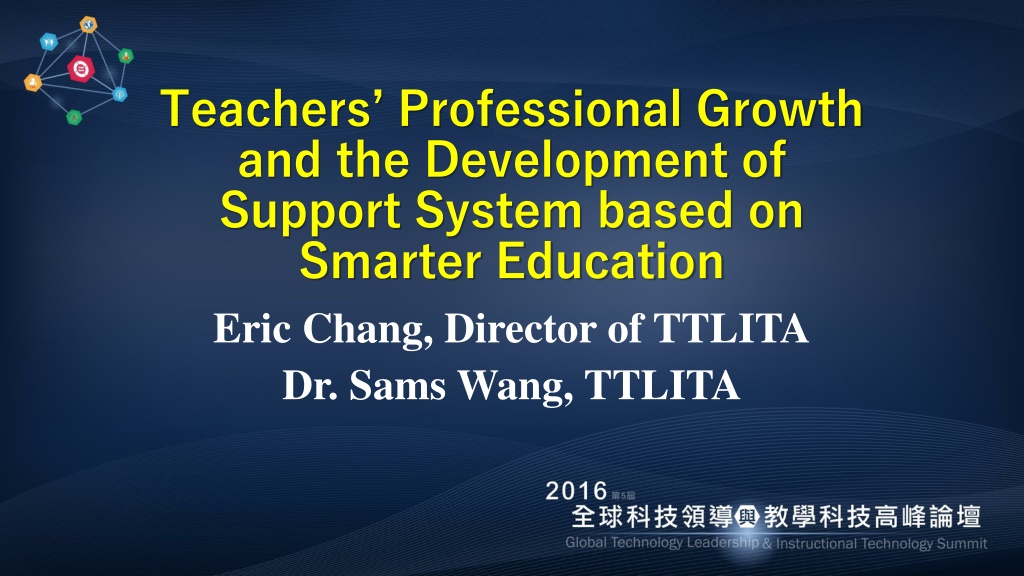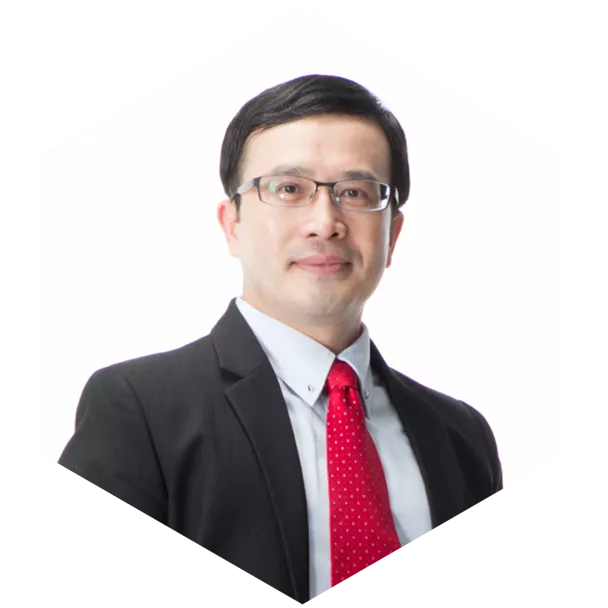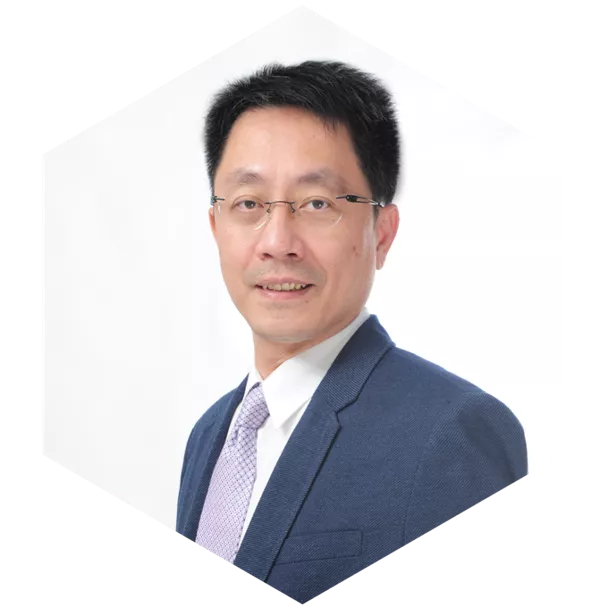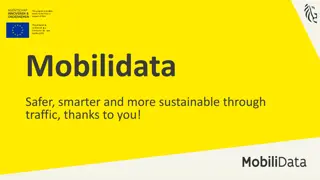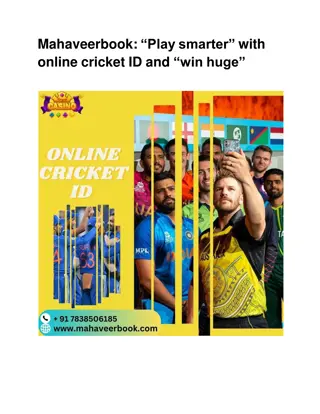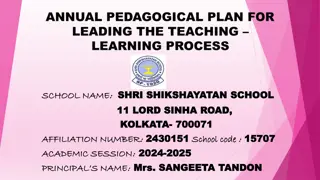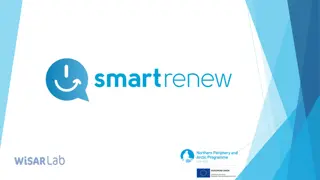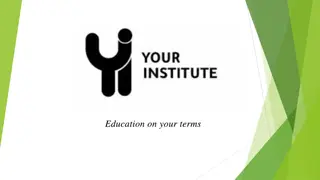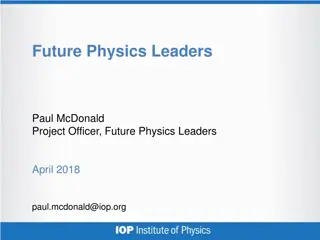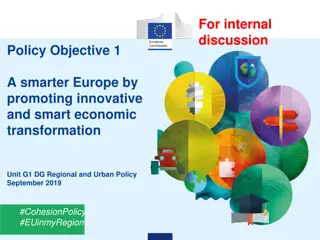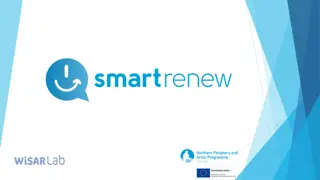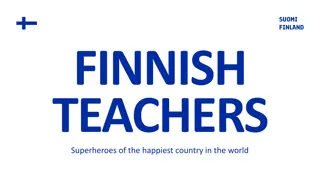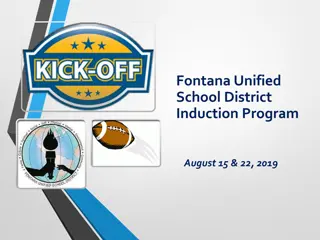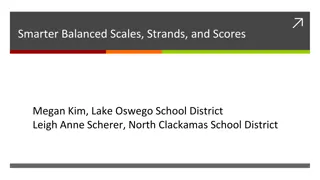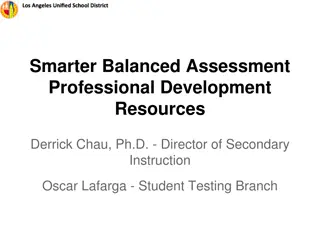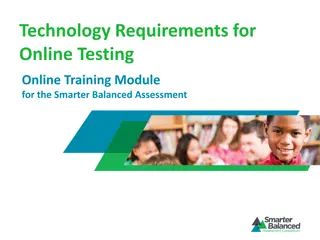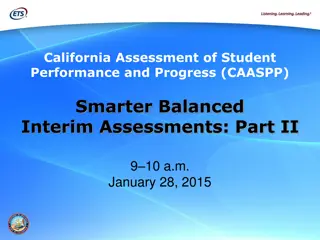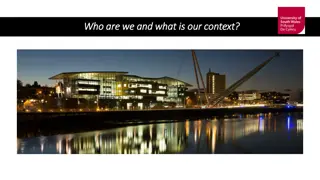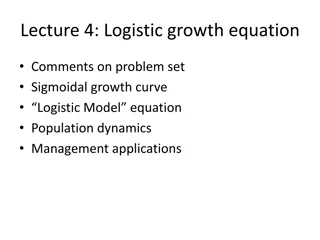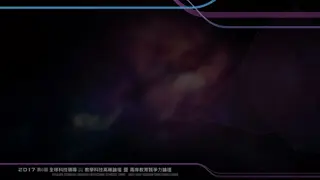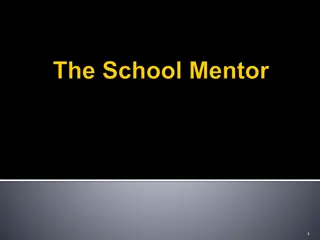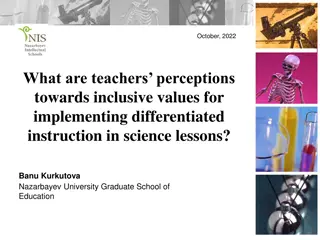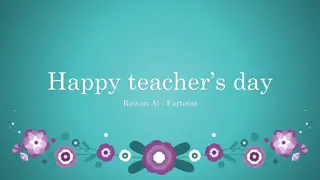Teachers Professional Growth and Support System in Smarter Education
The Three-Level Scaffolding Framework focuses on enhancing teachers' professional development through smarter classrooms. The framework emphasizes reflection, inquiry, collaboration, and sharing to accelerate systemic change in educational settings. By utilizing processes like RICS (Reflect, Inquire, Collaborate, Share), educators can transform teaching practices and embrace technology for improved instruction. This approach fosters a supportive environment for ongoing teacher growth and development, aligning with the vision of Smarter Education.
Download Presentation

Please find below an Image/Link to download the presentation.
The content on the website is provided AS IS for your information and personal use only. It may not be sold, licensed, or shared on other websites without obtaining consent from the author. Download presentation by click this link. If you encounter any issues during the download, it is possible that the publisher has removed the file from their server.
E N D
Presentation Transcript
Teachers Professional Growth and the Development of Support System based on Smarter Education Eric Chang, Director of TTLITA Dr. Sams Wang, TTLITA
Teachers Professional Growth and the Development of Support System based on Smarter Education Teachers professional development in terms of the three-level scaffolding framework The support system for teachers professional development of a smarter school
Outline 1. Analyze the three-level scaffolding framework 2. Examine the cases of RICS, TPC, and DIA for teachers professional development (PD)
Teachers Professional Development based on Smarter Education: Vision and Cases For more information , please refer to the Annual Handbook of Smarter Education on page 115.
The Three-Level Scaffolding Framework This framework represents that teachers can use smarter classrooms to accelerate their PD and systemic change.
The First Level of Three-level Scaffolding In order to be smarter teachers, teachers at the first level should effectively use the RICS process. RICS means Reflect, Inquire, Collaborate , and Share.
RICS Reflect Require time for reflection how technology can transform teaching and learning. Establish a vision of how the use of technology can enhance instruction.
RICS Inquire Teachers identify questions about their own practice with technology and action research activities undertaken to answer those questions.
RICS Collaborate Structure time for collaboration, to collaboration with mentors, learning circles, learning communities, and even collaboration with students.
RICS Share Arrange for an authentic audience with which teachers participants can share their learning providing an impetus to change for teachers, giving them reason to engage. Sharing with one another the results of authentic tasks also extends the learning exponentially.
Islamic Education Colleges (IEC) case of RICS The College is located in Amman, Jordan. The TEAM Model Smarter Classroom Carnival was held on October 27, 2016 in Islamic Education College. Teachers demonstrated their smarter lectures with Smarter Classroom Support system. The Carnival is a team-based competition.
Colleges (IEC) The TEAM Model Smarter Classroom Team-based Competition is a model for teachers professional development, which comprises five stages: 1. Team-based cooperation (Collaboration) 2. Team-based training (Inquire) 3. Team-based competition (Share) 4. Team-based reflection (Reflect) 5. Team-based growth (Growth)
Colleges (IEC) The TEAM Model Smarter Classroom Carnival is a teachers professional development model which includes the five process: Collaboration(C) Inquire(I) Share(S) Reflect(R) Growth(G)
The Second Level of Three-level Scaffolding Smarter teachers at the second level of the scaffolding effectively adopt the TPC component. The TPC means Technology, Pedagogy and Content.
Technology Knowledge about certain ways of thinking about, and working with technology, tools and resources, and working with technology can apply to all technology tools and resources. This includes understanding information technology broadly enough to apply it productively at work and in everyday life.
Pedagogy Teachers deep knowledge about the processes and practices or methods of teaching and learning. They encompass, among other things, overall educational purposes, values, and aims. This form of knowledge applies to understanding how students learn, general classroom management skills, lesson planning, and student assessment.
Content Teachers knowledge about the subject matter to be learned or taught. This knowledge would include knowledge of concepts, theories, ideas, organizational frameworks, knowledge of evidence and proof, as well as established practices and approaches toward developing such knowledge.
Dr. Steven Liangs case of TPC Dr. Liang combines the Student Tablet Smarter Classroom (new Technology), adopts the Team-based Learning (new Pedagogy) and integrates the .HTE teaching materials (new Content ) to create the Smarter Model of TBL.
The Third Level of Three-level Scaffolding Smarter teachers at the third level of the scaffolding create smarter Lectures of Demonstration of teaching, Insight of learning, and Adaptability of classroom.
Teacher Lin Hsin-Meis case of DIA Teacher Lin Hsin-Mei uses the smarter classroom to show the Demonstration of teaching between the teacher and the students, analyze the IRS results and clouDAS analysis to understand the Insight of learning of students, and integrates the delivering function of support system to implement the Adaptability of lecture in order to create a smarter lecture .
Ongoing professional development keeps teachers up- to-date on new research on how children learn, emerging technology tools for the classroom, new curriculum resources, and more. The best professional development is ongoing, collaborative, and connected to and derived from working with students and understanding their culture (Edutopia, 2016).
